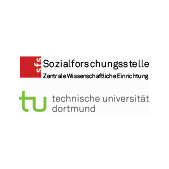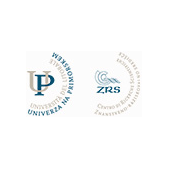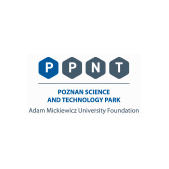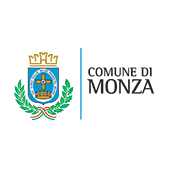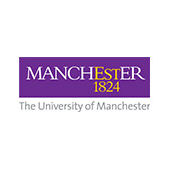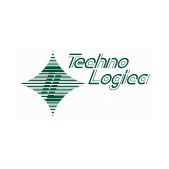Sustainability is the result of innovation processes, and then the introduction of new products, services, processes and organizational models, able to modify the companies’ business models and improve their economic, social and environmental performances in the long-term.
A team of researcher from the University of Milano Bicocca - composed by Prof. Dario Cavenago, Prof. Elisabetta Marafioti and Dr. Mattia Martini – has conducted a research aimed to analyse the status and potential of the agro-food industry in Italy with regards to sustainability and sustainable innovation initiatives.
A survey has been carried out in 2015, involving a sample of 83 medium and large enterprises operating in Italy in the sectors of “Agriculture”, “Food Industry” and “ Large Retail”, together with an analysis of cases of enterprises representing examples of best practice on sustainability and corporate social responsibility.
Sustainable innovations
The findings indicate that 80% of companies have introduced product and/or process innovations intended to jointly improve their economic, social and environmental performance in the last three years. Moreover, 97% is interested in introducing sustainable projects in the next future. The process innovations are the most diffused, including the use of renewable energy sources (74.6%), recycling and reuse of material resources (52.2%), implementation of technologies to reduce energy consumption, waste, and air pollution (65.7%) and the dematerialisation of the information (55.2%). There are also product innovations which are common within the agro-food industry, such as those to reduce the packaging’s environmental impact (57% of enterprises) and the replacement of polluting components with raw materials which are characterized by a low environmental impact (50.7%).
Organizational models
The companies in the sample make an extent use of social responsibility systems and tools aimed to manage human resources and environmental and social problems in a sustainable way. They often implement certifications – of products, processes and organization as a whole (e.g. quality certifications, supply chain certification, environmental certifications). Those certifications act as drivers for responsible choices, and also contribute to make companies more competitive in both the domestic and international markets.
Measuring the impact of innovations
Measuring the impact of sustainable innovations is a necessary condition to evaluate their effectiveness. Additional, measuring the impact is also important to improve sustainable innovations in the long-term and to communicate the sustainable performance to the stakeholders. However, estabilished frameworks - such as SROI (Social Return on Investment) and GRI (Global Reporting Initiative) – are considered too standardized. As consequence,31% of the companies choose intermediate solutions, by developing ad hoc measures focused on specific dimensions of sustainability performance, while the most (51%) performs just a cost-benefit analysis to assess the impacts of their sustainable innovation initiatives.
Stakeholders’ engagement
In order to ensure the effectiveness of an innovative process, companies have to understand the needs and expectations of different interested actors. In this regards, many interviewed companies have developed mechanisms to involve stakeholders (e.g. customer satisfaction surveys, on-line consultations, satisfaction surveys, workshops and focus group, partnership or sponsorship). The attention, however, is geared primarily to customers and employees, while suppliers and other local actors (e.g. public institutions, citizens, associations, social entreprises) are often excluded from the "engagement" process.
Corporate Social Responsibility
The socially responsible orientation and s of the involved companies are often not formalized. According to the results of the study, Corporate Social Responsibility (CSR) has been by the 30% of the interviewed companies, and it does not seem to be a necessary condition for sustainable innovation. Many of the companies, in particular SMEs, have not adopted CSR system, but do engage in sustainable innovation processes (75% of the companies have introduced a sustainable innovation in the last three years, although they have not implemented a CSR system).
Barriers and drivers
The main barriers to sustainable innovation as identified by the research project are the lack of technological and financial resources, and the absence of appropriate roles and incentives at institutional level. On the other hand, these barriers are often exceeded when the leaders of companiers are strongly oriented to the creation of social value and also able to catch the changes in the preference of their final clients. Our findings indeed, indicate that the main drivers of sustainable innovation in the agro-food companies are of ethical and cultural nature, and in particular related to the managerial and organizational cultures/values, and to the growing clients' sensibility and stakeholders' interest for sustainable issues.
Final considerations
Social responsibility and sustainability have emerged as relevant drivers of innovation processes within agro-food comapnies in Italy. However, in order to enhance the succesful realisation of inovation processes, a managerial action is needed, which should be aware of the role that the private companies can play in promoting sustainable development. As a matter of fact, the rules and standards designed by the local, national or transnational public institutions, even if usefull, are not enough to foster sustainable innovation in the private sector. Rather, for sustainability to become a guiding principle an orientation of managers towards the creation of “shared value”, beyond and over the logic of mere compliance, is required.
Relevant themes:
Raw materials, Resource efficiency, Environment, Sustainable innovation
Relevant tags: Sustainable innovation, business model innovation, Corporate Social Responsibility, Agro-food cluster, Italian context, Sustainability, Eco-innovation








